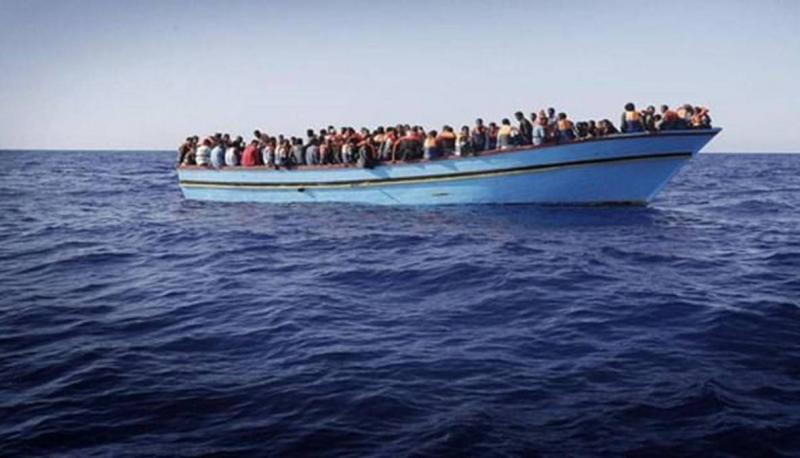Illegal migration operations by sea from Lebanon to European countries continue, albeit at a slower pace. The latest incident involved the capture of a key figure in these trafficking operations by the Lebanese Army. In a highly coordinated operation in the Sheikh Zanad area of Akkar in the north, a patrol from the Intelligence Directorate, supported by a unit of the Lebanese Army, dealt a severe blow to the mastermind behind the migrant smuggling operations, Shafiq Slim, nicknamed Shafiq "al-Hazor," who is from the town of Bbneen. His brother and several others were also arrested, and investigations commenced under judicial supervision.
The naval forces of the army demonstrated their capability by thwarting the largest operation to smuggle illegal migrants that was set to take place, which would have involved over 400 passengers of Lebanese, Syrian, and Palestinian nationalities. According to reports, 130 Syrians and 4 Lebanese citizens were arrested in Akkar while attempting to illegally cross the sea, along with the masterminds behind this operation. The migrants aimed to reach Italy, first boarding small boats to a large vessel coming from Syria that was waiting for them in the territorial waters, intended to carry over 400 individuals.
When it became apparent to the vessel's owner that a large number of passengers were delayed without any known reasons, he left with only about 70 people on board. Consequently, "al-Hazor" was arrested while standing on the shore, along with 134 individuals preparing for illegal migration with him, while others managed to flee before boarding the small boats, including the family of the arrested individual. The latter had been coordinating with the Syrian Abu Rami al-Hazrawi to ensure the success of the smuggling operation, which the army successfully thwarted despite the difficulties posed by the location and the mindset of individuals who view human smuggling as a source of livelihood.
The Army Command – Directorate of Guidance issued the following statement: "As part of the security operations carried out by the army to combat human trafficking and drug smuggling across borders and to arrest those disturbing public security, military units deployed have executed various missions supported by the Intelligence Directorate on the dates of August 11 and 12, 2023, resulting in the following: the arrest of 150 individuals in the town of Shadra, the Khirbet al-Rumman area, and the main road at the intersection of Al-Aouinat - Akkar while they were attempting to enter Lebanese territory illegally. The citizens (M.S.) and his brother (M.S.), (A.A.), and (W.T.) were arrested in the Abi Samra area - Tripoli for firing gunshots, and a Kalashnikov firearm along with a quantity of ammunition and cannabis was seized from them. Additionally, around 23 kg of cannabis and 3,000 Captagon pills were seized in the Wadi al-Zamrani - Arsal area on a motorcycle while attempting to smuggle them into Lebanon. The seized items were handed over, and investigations with the detainees began under judicial supervision."
It is important to note that the primary reason pushing citizens to embark on illegal migration is the unbearable economic situation that has made it impossible for them to secure their daily sustenance. Most migrants come from poor social backgrounds, selling belongings such as cars, homes, or other possessions, with some resorting to loans to cover travel costs that can range from $5,000 to $7,000, depending on the number of passengers on the boat.
During similar operations, one smuggler confirmed that "the trips launch from various locations along the Lebanese coast, specifically the north, while illegal departures from the capital, Beirut, are very limited," indicating that "the primary destination currently is Italy, where migrants aspire to enter Europe, planning to move later to other countries, particularly Germany."
He clarifies that "the trip usually takes about 7 to 8 days, but many boats experience engine failure or other issues near the Cypriot shores. In such cases, the Cypriot authorities repatriate migrants back to Lebanon." He further explains that "the boat's departure from the port is typically normal, as it is registered in the name of one of the fleeing individuals, with a meeting point on the shore established to transport the remaining migrants, who usually number between 70 and 100 depending on the capacity of the boat used."




